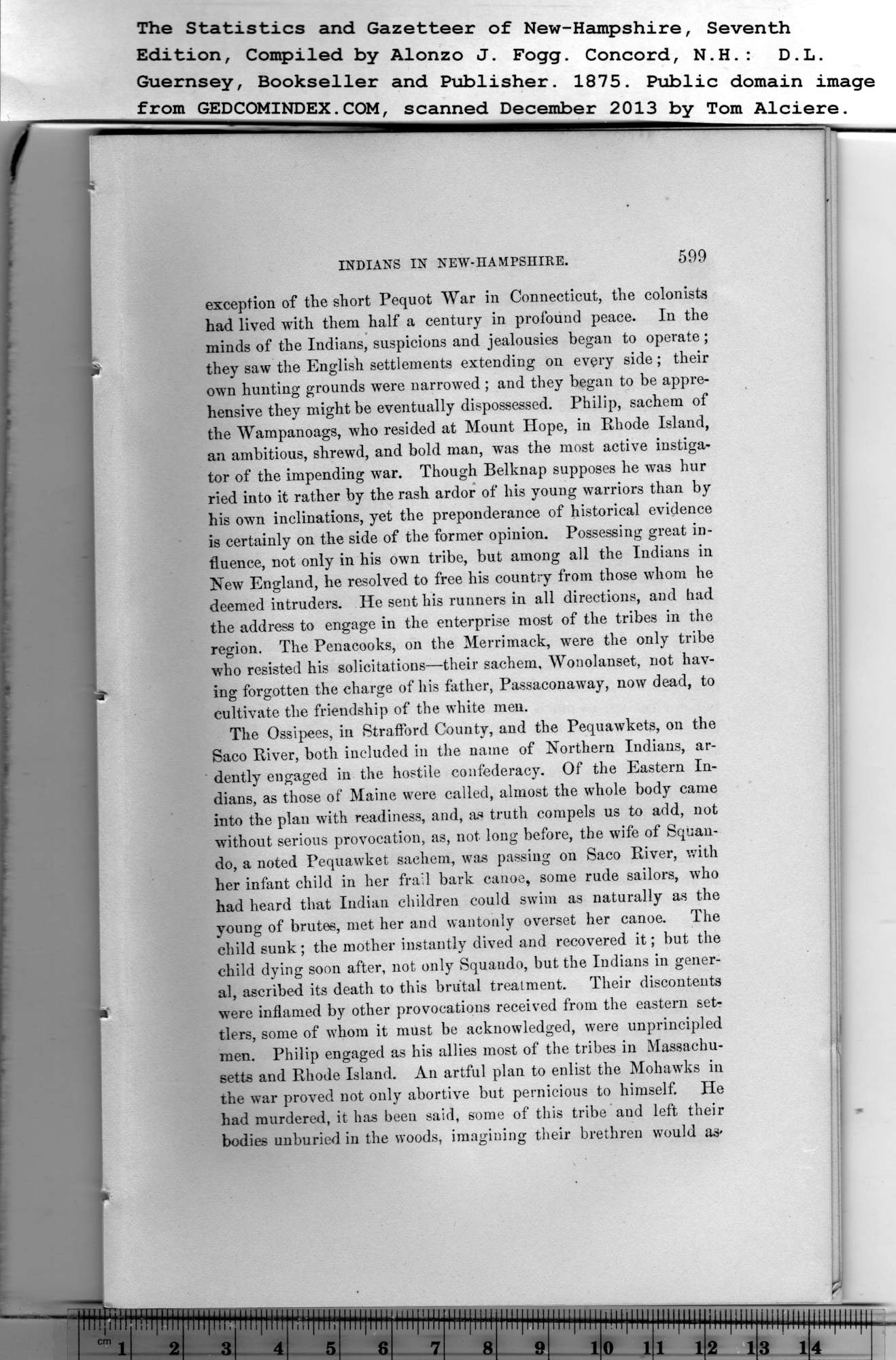|
INDIANS IN NEW-HAMPSHIRE. 599
exception of the short Pequot War in Connecticut, the colonists
had lived with them half a century in profound peace. In the
minds of the Indians, suspicions and jealousies began to operate;
they saw the English settlements extending on every side ; their
own hunting grounds were narrowed; and they began to be appre-
hensive they might be eventually dispossessed. Philip, sachem of
the Wampanoags, who resided at Mount Hope, in Rhode Island,
an ambitious, shrewd, and bold man, was the most active instiga-
tor of the impending war. Though Belknap supposes he was hur
ried into it rather by the rash ardor of his young warriors than by
his own inclinations, yet the preponderance of historical evidence
is certainly on the side of the former opinion. Possessing great in-
fluence, not only in his own tribe, but among all the Indians in
New England, he resolved to free his country from those whom he
deemed intruders. He sent his runners in all directions, and had
the address to engage in the enterprise most of the tribes in the
region. The Penacooks, on the Merrimack, were the only tribe
who resisted his solicitations—their sachein, Wonolanset, not hav-
ing forgotten the charge of his father, Passaconaway, now dead, to
cultivate the friendship of the white men.
The Ossipees, in Strafford County, and the Pequawkets, on the
Saco River, both included in the name of Northern Indians, ar-
dently engaged in the hostile confederacy. Of the Eastern In-
dians, as those of Maine were called, almost the whole body came
into the plan with readiness, and, as truth compels us to add, not
without serious provocation, as, not long before, the wife of Squan-
do, a noted Pequawket sachem, was passing on Saco River, with
her infant child in her frail bark canoe, some rude sailors, who
had heard that Indian children could swim as naturally as the
young of brutes, met her and wantonly overset her canoe. The
child sunk; the mother instantly dived and recovered it; but the
child dying soon after, not only Squaudo, but the Indians in gener-
al, ascribed its death to this brutal treatment. Their discontents
were inflamed by other provocations received from the eastern set-
tlers, some of whom it must be acknowledged, were unprincipled
men. Philip engaged as his allies most of the tribes in Massachu-
setts and Rhode Island. An artful plan to enlist the Mohawks in
the war proved not only abortive but pernicious to himself. He
had murdered, it has been said, some of this tribe aud left their
bodies unburied in the woods, imagining their brethren would as-
PREVIOUS PAGE ... NEXT PAGE
This page was written in HTML using a program written in Python 3.2
|
